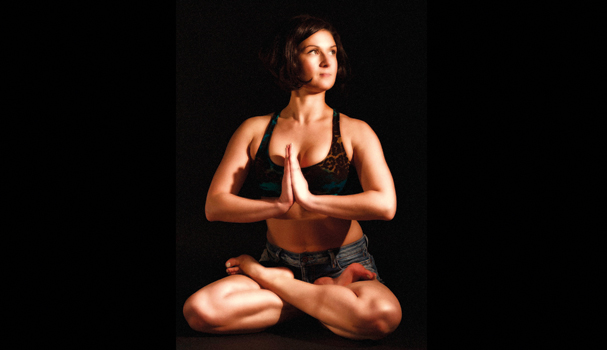For YogaBellies founder Cheryl MacDonald, franchising has certainly proven a more than acceptable means of growth. A proud wife and mother, MacDonald launched her niche female yoga enterprise four years ago, and ultimately decided that going the franchise route made sense from both a brand-building and logistical point-of-view.
Indeed, it is safe to say that if anyone was going to successfully operate a female yoga franchise, it would be MacDonald. It has, after all, been her life for the best part of a decade. “I have been practising yoga for about ten years now,” she explains. “I worked as a marketing manager at a business analysis firm but would teach yoga in the evenings.”
It was only when she was made redundant whilst on maternity leave with her son, who is now 4, that a solid, and much-needed, business opportunity arose from MacDonald’s previously ‘out-of-hours’ profession. “I just started teaching yoga in my spare bedroom,” MacDonald says. “We then turned the living room into the studio – but it soon became too crazy so I had to get a proper studio.”
Aside from the fact it has developed into a dedicated yoga franchise, YogaBellies distinguishes itself by adopting a woman-only policy, and offering classes geared towards various stages of the birth cycle, as well as to children. This naturally emanates from MacDonald’s own experiences of childbirth, and how she managed to tie it in her with her passion for yoga.
“I have always loved everything to do with pregnancy, and have always preferred teaching women yoga,” she explains. “Women are much more receptive which means teaching them yoga is very different to teaching it to men. Our bodies are built differently, we have a natural flexibility and men have a stronger upper body.”
As her yoga classes began to attract more interest, MacDonald decided the time was ripe to explore how to take it to a wider audience. Needless to say, franchising provided an attractive option. “I wanted to have control over the brand and the consistency over what my teachers were offering,” she says. “When I did my teacher training, there were over 50 of us on the course and only four of us are still teaching now. So I wanted to keep the group small and really get to know the teachers and actively work with them as they progress as teachers. The best way to do that seemed to be a franchise model.”
To that end, it makes sense that MacDonald’s ideal franchisee is somebody built in a similar mould to her. “They must have a keen interest in yoga but I also need someone who is just your everyday normal woman – I don’t want to scare my clients with too much wild chanting,” she adds. “So we are looking for mainstream people who embrace the principles of yoga but can also work with an ethical business mind.”

MacDonald’s time as a business analyst stood her in fairly good stead from the outset, but she admits that YogaBellies has now reached a point in its development where a more experienced entrepreneurial mind is required. And at the time of going to press, MacDonald was in the process of putting the final touches to a deal with Duncan Bannatyne, whose offer of £50,000 investment – for a 35% stake in the business (falling to 20% upon recouping the money) – should help take the franchise to the next level. “It will help expand the brand into areas that we wouldn’t have known how to before, and give us that extra level of professionalism,” says MacDonald. “I really feel that I have battled with what I can do and I really need help from someone with more business experience.”
You can’t help but admire MacDonald’s honesty. And given the demographic of her customer base, it is undoubtedly a quality that will continue to help YogaBellies in the future. On the contrary though, MacDonald says that laying things on the line is also one of the biggest challenges of franchising, especially when something as precious as your brand is involved. “People seem to think ‘I will do this and the business will grow’ but you see people trying to play about with your brand, you get people trying to do the wrong thing, who then think you’re being mean when you tell them they can’t do that.”
This extends to the relationship with clients too, which can come with its own set of trials and tribulations. “It can be very difficult and emotional, especially when you are dealing with lots of women who have just had babies or are pregnant,” she says.
MacDonald believes that franchising isn’t an ideal fit for everyone, especially those looking to make a quick buck. “I think there are much easier ways to make money,” she says. “I love what I do and so I don’t mind as much, but if you don’t love what you do, I wouldn’t go near it because it’s not easy.”
Fortunately, the international appeal of yoga has worked wonders for YogaBellies, which currently boasts 87 franchises across seven countries. “The yoga community is global so if you become well known as a yoga teacher, people will seek you out,” MacDonald explains. “I haven’t done any international marketing – people have found me.”
After all, what is franchising if it isn’t a way of marketing your brand far and wide, and at minimal cost? “Once you have established your model and it is working, it is just a matter of finding the right people to roll that out for you,” MacDonald says. “If you are providing the right materials for your franchisees, then they are rolling it out in the local area and growing the brand for you. It becomes organic.” ![]()
Share via:








































